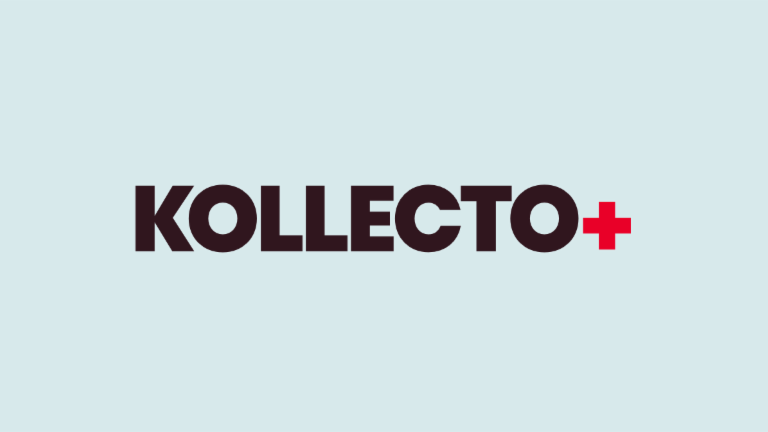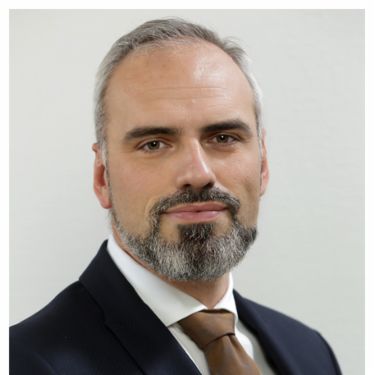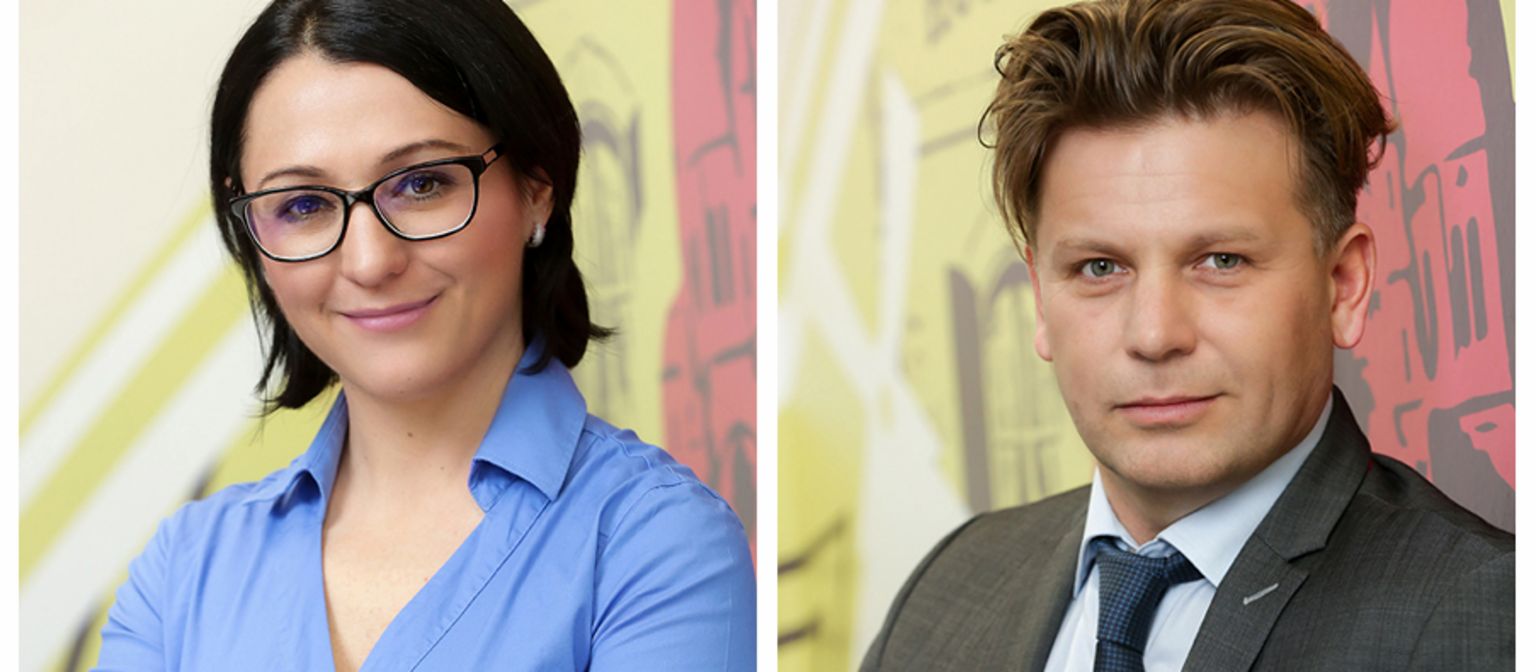
EOS Magazine
Annual and Sustainability Report 2024/25
In our Annual and Sustainability Report, we reflect on a successful financial year in which we courageously tackled new challenges. The report outlines the EOS Group’s principal activities and business highlights, along with its strategies for corporate, social, and environmental responsibility.
Press releases
2015-ös szintre esett vissza a fizetési fegyelem Magyarországon
Budapest, 2022. október 5.
- 2019-ig javuló tendencia után a pandémia és az energiaválság következtében jelentősen nőtt a késedelmes fizetések és a behajthatatlan adósságok aránya
- Az emelkedő fizetési határidők ellenére is csökkent az időben fizetők aránya minden szegmensben
A számlák 76%-át fizetik pontosan a magyarországi ügyfelek, amely nagyjából azonos a közép- és kelet-európai aránnyal, ám 3 százalékponttal elmarad teljes Európa átlagához képest (79%). Ez az arány nagyjából a 7 évvel ezelőtti fizetési fegyelemnek feleltethető meg. Európa egyik vezető kintlévőség-kezelő vállalata, az EOS Csoport 2019 után ismét átfogó kutatásban vizsgálta a lakosság és a vállalati szektor fizetési szokásait. A kutatásban 16 ország, mintegy 3200 döntéshozóját kérdezték meg a vállalati- és magánszemély ügyfelek fizetési szokásairól.
Lényeges változás látszik a magyarországi fizetési határidők tekintetében is: míg 2019-ben a magyarországi vállalatok a lakosság felé átlagosan 30 napos fizetési határidővel számláztak, 2022-re ez a szám 33-ra emelkedett, a B2B számlák fizetési határideje pedig 39 napról 43 napra nőtt. Ezekkel az arányokkal 5 (B2C) és 2 nappal (B2B) hosszabbak a magyarországi fizetési határidők a régiós átlagnál.
Ám sajnos a hosszabb fizetési határidők sem elegendőek ahhoz, hogy ellensúlyozzák a válságok hatásait, mivel a vállalatoknak még így is növekvő késedelmekkel kell szembenézniük. 2019-hez képest jelentősen, 5 százalékponttal, 15-ről 20%-ra nőtt a késedelmesen fizetett számlák aránya, amely 2 százalékponttal magasabb az európai átlagnál (18%).
A behajthatatlan követelések aránya megegyezik a legutóbb mért értékkel, a Magyarországon kiállított számlák 4%-át nem fizetik ki egyáltalán, ám a szakértők szerint ebben jelentős romlás várható, mivel az utóbbi fél év hatásai következtében nem fizető ügyfelek csak később jelennek majd meg a statisztikákban.
Erre utal az is, hogy a megkérdezett magyarországi vállalatok körében kifejezetten pesszimista hangulat uralkodik. Míg 2019-ben csak 15%-uk látta pesszimistán a fizetési szokások alakulását, mára már minden negyedik cég szerint (25%) jelentősen romlani fog az ügyfelek fizetési hajlandósága a következő 2 év során, míg javulásra mindössze 18% számít.
Lencsés Tamás, az EOS Magyarország ügyvezetője kiemelte: „Az idei kutatás rámutat arra, hogy a válságok sajnos nem múlnak el nyom nélkül, és hatásuk pontosan lekövethető a statisztikai adatok alapján. A követeléskezelés szerepe ezekben a nehéz időkben felértékelődik, hiszen egy vállalat számára már nem csak a profitabilitás, hanem egyenesen a túlélés múlhat azon, hogy meg tudja-e tartani a likviditását. Az európai vállalatok mindössze 1%-a szerint csökkent a munkamennyiség a kintlévőség-kezelés területén a világjárvány óta, míg 31%-uk számolt be jelentősen több munkamennyiségről a területen” – mondta el a szakember.
Az EOS 2022-es ‘European Payment Practices’ tanulmányáról
2022 tavaszán, az EOS Csoport 16 európai országban 3200 pénzügyi szakértőt kérdezett ki az országukban tapasztalt fizetési szokásokról. Ausztriában, Belgiumban, Bulgáriában, Görögországban, az Egyesült Királyságban, Franciaországban, Lengyelországban, Romániában, Szlovákiában, Spanyolországban, Horvátországban, Csehországban, Svájcban, Németországban, Szlovéniában és Magyarországon 200, a kintlévőségek kezelése szektoron belül tevékenykedő döntéshozó válaszolt az utóbbi években tapasztalt, fizetéssel, gazdasági tendenciákkal és a kintlévőségek kezelésével kapcsolatos kérdésekre.
Az EOS Csoportról
Az EOS Csoport technológia-vezérelt kintlévőség-kezelő és pénzügyi szolgáltató vezető szerepet tölt be a követeléskezelési ágazatban. Több mint 45 éves tapasztalatának, valamint 24 országban működő telephelyeinek köszönhetően az EOS világszerte mintegy 20.000 ügyfélnek nyújt okos szolgáltatást a követeléskezelés minden területén. A fő célágazatok a bankok, az ingatlanszektor, a szolgáltatóvállalatok, a közművek, valamint az e-kereskedelem. Az EOS több mint 6.000 munkatársat foglalkoztat és az Otto Csoporthoz tartozik.
Az EOS Csoporttal kapcsolatos további információkért látogasson el ide: https://hu.eos-solutions.com
Sajtókapcsolat
Körömi János – PR tanácsadó
+36 30 951 0149
The EOS Group achieved stable growth in the 2021/22 financial year
Budapest, September 14, 2022
- Major steps towards a highly digitalized group of companies
- Record year in debt purchasing with a total investment of 669 million euros in NPLs and real estate
The EOS Group, one of the world's leading international investors in receivables portfolios, continued its confident and stable development in the turbulent 2021/22 financial year. Despite the coronavirus pandemic and an increasingly aggressive market environment, the group's total turnover grew by 1.6 percent in the last 12 months. Earnings before interest, taxes, depreciation, and amortization (EBITDA) totaled 282.5 million euros, which is only slightly lower than the previous year (312.4 million euros). The reasons for this are primarily the war in Ukraine and the related accounting precautions taken by EOS. Nevertheless, the full business year closed positively: EOS once again achieved a strong operational performance in the 24 countries where it operates.
The financial year was a record year for EOS, especially in the area of debt purchasing: the Group invested a total of 669 million euros in NPLs and real estate during this period. With this result, it clearly exceeded the volume of the previous business year.
‘We owe last year's success primarily to our more than 6,000 employees, who are able to make EOS more dynamic and digital day by day in these constantly changing times,’ emphasized Marwin Ramcke, CEO of the EOS Group. ‘The past year was characterized by the development of our core professional competencies, excellent international cooperation between our sites in 24 countries, and increasing investment in automation, which continuously improves the efficiency of our business processes. These are all achievements that we can be very proud of as a team in such a challenging year,’ Ramcke continued.
The Eastern Europe region leads the EOS Group's turnover growth
The Eastern Europe region in particular closed the 2021/22 financial year very successfully, with turnover increasing by 12.2 percent compared to the previous year. The Croatian, Polish, Serbian, and Slovakian national companies were particularly strong. Despite the stable performance, the Eastern European result (EBITDA) decreased slightly, mainly due to precautionary measures taken because of the war in Ukraine.
In the area of debt purchasing, the investment volume in the region more than doubled. ‘In the last financial year, we invested a total of 402.5 million euros in Eastern Europe, of which 226.5 million euros were in secured receivables and real estate,’ said Carsten Tidow, Managing Director for Eastern Europe at the EOS Group. The national companies in Greece and Poland were particularly outstanding. ‘To profit even more from this overall, it is important that we connect the national companies with each other even better. Promoting innovation in this way is our goal for the next business year,’ he emphasized.
Strengthening leadership position and increasing digitalization
Over the years, the EOS Group has established a defining leadership position both as an international financial services company and as an investor in non-performing loan (NPL) packages. Thanks to the stable financial background of the Otto Group, EOS once again made significant investments in the NPL market. The focus on process automation and the use of data-driven collection software also enable more successful and efficient processing of receivables.
‘We have made promising progress regarding a joint analytical data budget, which will clearly advance us in process management in the future. The related investment was a significant step towards a digitalized group of companies,’ said Justus Hecking-Veltman, CFO of the EOS Group. The development and use of chatbots in communication with consumers, as well as the 24/7 service portals that have already been introduced in several countries, are further prime examples of EOS's digital transformation.
Further information, interviews, and background materials on the EOS Group's past 2021/22 financial year are available on the virtual press portal.
About the EOS Group
The EOS Group is a leading technology-driven investor and service provider in the receivables management industry. With over 45 years of experience and sites in 24 countries, EOS provides smart services for around 20,000 clients worldwide in all areas of receivables management. The main target sectors are banking, real estate, service companies, utilities, and e-commerce. EOS employs more than 6,000 people and is part of the Otto Group.
For more information about the EOS Group, please visit: https://hu.eos-solutions.com
Press Contact
János Körömi – PR consultant
[email protected]
+36 30 951 0149
From November, Viktória Kovács will lead the HR directorate at one of Hungary's leading receivables management companies
The specialist graduated as an economist and has more than 20 years of experience in HR. During her career, she has worked in leading professional positions at many large Hungarian and international companies. She started her career as a recruitment consultant, then spent 15 years at GE's two divisions and Budapest Bank. After GE's HR Leadership Program, she has mostly participated in HR Business Partner roles in the company's life in global, regional, and Hungarian positions.
Subsequently, as AVON’s regional HR manager, she worked with sales, logistics, and IT teams from 5 countries with corporate culture, talent development, lean and change management focus. After that, as the HR manager of Affidea Hungary, she worked on strengthening acquisition, talent development, and corporate culture. She spent the past year as a consultant for HR Partner Consulting, where she worked on the development of HR processes at SIGNAL IDUNA Insurance.
"My work will focus on organizational development, conscious talent management and strengthening the corporate culture so that our employees can work as confidently and committedly as possible in today's fast-changing world, and EOS can be an even more successful and attractive employer," said Viktória Kovács.
According to an annual report by EOS - one of Europe’s leading receivables management companies - households has sought to repay overdue debts that were not subject to the government credit moratorium.
Budapest, February 20, 2021 - The year 2020 also caused significant uncertainty in the receivables management market. Although it became clear in the spring that the state moratorium did not apply to debts that had already expired or terminated and such managed by the debt management companies, one of the leading players in the market, EOS Hungary, tried to help debtors in trouble due to the epidemic with a voluntary moratorium.
“In the first quarter of the year, we experienced a significant uncertainty in the economy, as neither the assignees nor the assignors could have foreseen exactly how the government is planned to handle the crisis, and what measures would apply to which companies, and for how long. This uncertainty meant that we registered a significant slowdown in the primer non-performing loan market” said Tamás Lencsés, Managing Director of EOS Faktor Zrt.
The voluntary moratorium introduced by EOS was twice for a period of 3 months, which meant that if a debtor claimed fairness on the grounds of the situation caused by the epidemic, he/she could be exempted from repayment for up to 6 months. “Experience has shown that less than 1% of our debtors took advantage of this opportunity, indicating that the population was consciously trying to use the funds, freed up due to the credit moratorium, to repay its already overdue debts. Although the voluntary moratorium has expired, in line with our corporate purpose, we continue to look for opportunities to find flexible solutions for our debtors in trouble due to this pandemic” added Tamás Lencsés.
In the second wave, the NPL market for receivables was almost completely dried-out, as it was and still not possible to terminate contracts of overdue receivables. Nonetheless there are already signs of a resumption of assignments for late 2021. “We have already registered receivables package sales; however, they lag far behind of the previous years both in volume and value. The assignors are following a sit and wait strategy, and they will understandably make steps if they see what claims will appear in their books after the credit moratorium expires.”
According to the EOS Hungary report, when the financial service market can restart depends on the arrival and distribution of vaccines, but the situation is significantly different from the period of the 2008 financial crisis. “While the direct cause of the previous crisis was over-lending, it is now a more conscious and frugal attitude towards the population. We see that the economy now has more reserves than it did 13 years ago. We are currently looking forward to the resumption of the economy and the NPL market in the third to fourth quarters” the CEO added.
At the beginning of 2020, the year started with optimistic expectations, because although the situation was constantly analyzed at EOS, it seemed that the epidemic would not have a decisive impact on daily work processes, but in early March the company had to switch to teleworking in a matter of days. "Our situation was fortunate, as we introduced a regulated way of working from home at EOS Hungary shortly before the start of the epidemic, so the changeover did not cause a significant disruption to business operations" said Viktória Kovács, HR Director of EOS Faktor Zrt.
The company put half of its colleagues in home office at the beginning of the first wave, and by June, almost the entire staff had worked from home. The most complex part of this process was the preparation of the IT infrastructure, the administration of various declarations and official documents was already remote. Nearly 90% of the company’s employees currently work from home during the second wave. “The crisis has forced us to rethink our cost structure and our primary goal has been to retain the employees we have managed to achieve. Despite the crisis, EOS Hungary is extremely stable and has successfully retained the expertise that underpins quality service” said the expert.
- Increase in revenue due to strong business performance in Eastern Europe
- Again, a high level of investment in secured and unsecured receivables
- Strong push towards digitalization
Hamburg, Germany, July 15, 2020 – By consistently following its strategic direction as a technology-driven debt collection provider and financial investor, the EOS Group headquartered in Hamburg has again increased its revenue in the 2019/20 financial year. With a 4.8% increase in revenue to EUR 853.1 million, the previous year recorded very positive results. Earnings before interest, taxes, depreciation, and amortization (EBITDA) grew to EUR 343.4 million.
Regional strengths, push for digitalization and high level of investment key success factors
The international provider of tailored financial services, which is part of the Otto Group, can largely attribute its increase in earnings to a substantial 31.3% increase in revenue in Eastern Europe. Other important success factors include the strong push towards digitalization and the cultural development of the EOS Group combined with the consistently high level of investment of EUR 651.3 million in secured and unsecured receivables and real estate.
“I feel very proud as I look back at the last financial year. It is the most successful year in the history of the EOS Group,” says Klaus Engberding, CEO of the EOS Group. “Above all, I would like to single out the tremendous progress we have made in digitalization, with EUR 25 million invested in expanding our core IT systems, and the focus on our cultural transformation process. The use of artificial intelligence and advanced data analyses will help boost innovation in our industry. And in uncertain times like in the wake of the coronavirus pandemic, in particular, reliable processes, highly professional receivables management and sustainable financing are more important than ever for companies. We can offer all of this to our customers and we expect successful growth for our business in the coming year too.”
Overview of key performance indicators:
|
|
2019/20 |
2018/19 |
|
Revenue (in EUR million) of which Western Europe |
853.1
|
813.7
203.2 48.5 |
|
EBITDA (in EUR million) |
343.4 |
283.6 |
Differences may be shown in tables due to rounding.
For further key performance indicators, please see our online annual report.
Germany remains most important EOS market
Germany is again the strongest performing region in the EOS Group, with a 35.6% share of the consolidated revenue. The decline compared to the previous year to EUR 303.3 million resulted primarily from the sale of EOS Health Honorarmanagement AG. Even though fewer significant debt packages were offered on the highly competitive German market, EOS won crucial revolving portfolios and confirmed its leading position on account of its many years of experience and good reputation. Totaling EUR 236.0 million, the level of investment exceeded that of the previous year – particularly in the area of unsecured receivables.
“The success in Germany is primarily due to our operational excellence and intense sales activities in close proximity to our customers. Together with numerous digitalization initiatives and our outstanding reputation – also with respect to data protection – this makes us a reliable and attractive partner for our customers,” says Andreas Kropp, Member of the EOS Group’s Board of Directors and responsible for the German market. “To secure this position and our future viability, we are focusing our investments on our most important areas: employees, culture and technology.”
Substantial revenue increase in Eastern Europe leads to record high
With a EUR 63.6 million increase in revenue compared with the previous year to EUR 266.7 million in the region of Eastern Europe, EOS is thrilled to achieve a record high. This can be largely attributed to much higher revenues from receivables purchases, especially in Russia and Poland, but Croatia, Hungary, Serbia and Bulgaria also made significant gains in revenue. Other major drivers included the development of collection software “Kollecto +” and the resulting increased efficiency in the processing of receivables. In the last financial year, EOS in Eastern Europe also carried out significant transactions in non-performing loans (NPL). The highest NPL investments were made in Poland, Croatia, Russia and Hungary. In addition, with an NPL portfolio comprising EUR 350 million, Bulgaria made the largest secured debt purchase on the Bulgarian market to date.
“Our strong local expertise, our approach to dealing fairly with defaulting payers and our cooperation with customers, often across borders, are all paying off,” explains Marwin Ramcke, Member of the EOS Group’s Board of Directors and responsible for Eastern Europe. “As a result, we gained important momentum in secured and unsecured debt collection and could share knowledge and expertise within the Group. We also made substantial investments in secured debt portfolios in Slovenia and Serbia, and are now in a position to process secured and unsecured receivables in all the Eastern European countries in the best possible way,” says Ramcke.
Stable business performance in Western Europe
In Western Europe, the very pleasing operational business performance in Belgium, France and Austria resulted in a 5% overall increase in revenue, exceeding the previous year’s result. Therefore, the regional EOS companies again held their ground as the leading provider for debt purchasing. Despite persistently tough market conditions, France stood out and made significantly larger investments in both portfolios secured by real estate and unsecured portfolios. Belgium and Spain also increased their investment activities. The nominal value of a package of 47,000 receivables that EOS Aremas in Belgium purchased from bpost bank, for example, is EUR 36 million.
“The EOS Group is very well positioned in Western Europe. Thanks to our expertise and many years of experience, especially in banking and telecommunications, we are a preferred strategic partner for our customers,” comments Dr. Andreas Witzig, Member of the EOS Group’s Board of Directors and responsible for the Western European and North American regions. “We are making huge investments in big data and analytics and are helping to resolve problems relating to NPLs. Despite the coronavirus crisis, which has hit France and Spain particularly hard, we remain a reliable partner in the field of fiduciary services and debt purchasing,” confirms Witzig.
Growing investments in North America
With a five percent increase in revenue of EUR 2.6 million, the North American region was slightly above the previous year’s result. In particular, the strategic focus on debt purchasing, in which EOS invested a total of EUR 28.8 million, almost EUR 4 million more than the previous year, paid off in the USA. In Canada, revenue was markedly above the 2018/19 financial year and thus well above target. The focus on fiduciary services, in particular, was developed further.
“The North American market is a challenging environment for the EOS Group, but Canada is developing very satisfactorily,” comments Dr. Andreas Witzig, Member of the EOS Group’s Board of Directors and responsible for the Western European and North American regions. “We have become one of the market leaders in fiduciary collection there in recent years and have clearly exceeded the expectations for revenue and earnings for 2019/20. Along with our Canadian team, we are very proud of this. In the US, our increased investment in purchase of receivables is showing positive trends. We intend to continue this focus in the current financial year,” adds Witzig.
About EOS Group
The EOS Group is one of the leading technology-driven financial investors and an expert in the processing of outstanding receivables. The company's core business is the purchase of unsecured and secured debt portfolios. With over 40 years of experience, EOS offers some 20,000 customers in 26 countries around the world smart services for all their receivables management needs. Its key target sectors are banking, utilities, real estate and e-commerce. EOS employs more than 7,500 people and is part of the Otto Group.
For more information on EOS Group, please go to www.eos-solutions.com
Budapest, July 7, 2020 – Euler Hermes Rating, one of Europe’s leading rating agencies, has once again given the credit standing of EOS Holding an A rating. For the 16th time in a row, EOS impressed the auditors with their very high, stable level of earnings and excellent capital structure. The rating assessment emphasized their many years of experience in the valuation, acquisition and recovery of non-performing receivables, their market leadership in Germany and strong position in the European market, in particular.
This builds confidence: Despite the coronavirus crisis, Euler Hermes rates the financial risk of EOS as low. Although there may be a decline in revenue and earnings in the short to medium term, the auditors again expect a good to very good level of earnings in the long term.
Sustainable investments on a substantial scale
In recent years, EOS has systematically stepped up its activities as a
financial investor and has established itself as a market leader in the purchase of debt packages in some countries. In the 2019/20 financial year, the company invested EUR 651.3 million in unsecured and secured receivables and real estate.
“We want to make substantial, sustainable investments in receivables packages in the coming years too,” points out Justus Hecking-Veltman, Chief Financial Officer of the EOS Group. “In this context, spreading our risk over several countries is very important. Nevertheless, we do not win every portfolio with our pricing models. In certain markets, we go through phases in which we do not succeed for a long period of time. Nevertheless, we are sticking firmly to the script, because this is what makes us a stable, soundly operating and reliable company, today and in the future.”
About EOS Group
The EOS Group is one of the leading technology-driven financial investors and an expert in the processing of outstanding receivables. The company's core business is the purchase of unsecured and secured debt portfolios. With over 40 years of experience, EOS offers some 20,000 customers in 26 countries around the world smart services for all their receivables management needs. Its key target sectors are banking, utilities, real estate and e-commerce. EOS employs more than 7,500 people and is part of the Otto Group.
For more information on EOS Group, please go to www.eos-solutions.com
Almost a tenth of the Hungarian companies' revenue comes from the collection of late payments.
Budapest 25 February 2020 – According to the EOS Group study on European payment habits, a significant 8% of companies' revenue comes from the recovery of overdue receivables. One of Europe's leading debt management companies has interviewed 3400 corporate decision-makers in 17 European countries in its research.
One in two (51%) representatives of Hungarian companies said they would rely on an external partner to manage their debts, including not only the professional receivables management companies, but also service providers such as law firms. This is a 3 percentage-point increase over last year and is relatively high in Europe. 42% of all European surveyed companies work with external partners, which is a 5 percentage-point increase compared to the previous year's data.
An important factor in the performance of the economy is that most of the money collected by companies is used to pay off their debts (72%), while 49% of them use it to protect or create jobs. The first one shows a significant increase of 18 percentage points compared to the previous year, which shows that circular debt is a typical scenario in Hungary. 46% of the surveyed firms mentioned expansion and 29% mentioned R&D as being funded from managed debts.
Tamás Kraszna, head of EOS Hungary's Unsecured Collection Department, emphasized that the proper and professional handling of receivables has many positive effects on economic performance. “Companies finance a significant proportion of economic stimulus activities, such as job creation and expansion, from the revenue they generate” the expert said.
About EOS 2019 'European Payment Practices' Study
In the spring of 2019, EOS Group interviewed 3,400 financial experts in 17 European countries about their payment practices in their country. In Austria, Belgium, Bulgaria, Greece, UK, France, Poland, Romania, Russia, Slovakia, Spain, Croatia, Czech Republic, Switzerland, Germany, Slovenia and Hungary, 200 decision makers in the receivable management sector responded to questions about payment, economic trends and debt management over the past 12 years.
The EOS Group
The EOS Group is one of the leading international providers of customized financial services. Its main focus is on receivables management, and with its 60 subsidiaries, more than 7,500 employees and 20,000 customers, it is one of the largest players in the market. Working in an international network of partner companies, the EOS Group has resources in more than 180 countries, and directly operates subsidiaries in 26 countries. The company's key target sectors are banking, insurance, utilities, telecommunications and IT companies. EOS is part of Otto Group.
For more information please go to: www.eos-solutions.com.
Payment morale has improved by one percentage point compared to last year, however, improvement is faster in the region, according to this year's EOS Group research on European Payment Practices.
Budapest, 25th September, 2019 – 78% of the bills are paid on time by Hungarian customers, which is slightly below the Central and Eastern European ratio (80% pays on time). For the seventh time, Hungary participated in a survey conducted by one of Europe's leading receivables management companies. The survey asked about 3,600 decision-makers in 17 countries about the payment habits of corporate and private clients.
There is no significant change in Hungarian payment deadlines: in 2019, Hungarian companies were billed with an average 37-day payment deadline, which has not changed much in the last 5 years, despite the fact that European companies' average payment deadline has decreased from 37 to 33 days.
In 2019, 18% of the bills were paid late, which is one percentage point lower than last year's rate and it is the same as the Eastern European average. Putting the rates into 5 years perspective, there is a clear improvement in the payment habits of Hungarians, as in 2014 only 74% of bills were paid on time and 21% were late.
The proportion of irrecoverable debts is the same as last year, 4% of the invoices issued in Hungary are not paid at all, which is a significant 2 percentage points improvement compared to 2014.
There are similar reasons for non-payment and late payment for individuals and corporate clients. Clients of the corporate sector mentioned late payments by their own partnerts (53%), use of supplier credits (51%) and bankruptcy (48%) as the reasons for late payments and non-payments; while 68% of non-paying individuals referred to temporary financial problems and 53% to total insolvency. This latter rates increased significantly compared to last year (temporary financial problems - 60%, long-term insolvency - 45%). Intentional non-payment was mentioned by the surveyed companies in 29% of corporate clients, while in the case of private clients, 41% encountered the problem. This includes not only intentional fraud but also dissatisfaction or questioning the legality of the invoice.
Tamás Kraszna, head of EOS Hungary's Unsecured Collection Directorate, said: “This year's survey shows that Hungarian clients' willingness to pay is steadily improving, however, the rate of intentional non-payment has increased slightly for both corporate and private clients. Recovery of such debts is less effective with companies' internal claims management methods and capabilities, so involving an external, professional receivable management partner in the debt management process can help greatly in such cases. Every second (51%) Hungarian company surveyed employs an external partner, ”the expert said.
About EOS 2019 'European Payment Practices' Study
In the spring of 2019, EOS Group interviewed 3,400 financial experts in 17 European countries about their payment practices in their country. In Austria, Belgium, Bulgaria, Greece, UK, France, Poland, Romania, Russia, Slovakia, Spain, Croatia, Czech Republic, Switzerland, Germany, Slovenia and Hungary, 200 decision makers in the receivable management sector responded to questions about payment, economic trends and debt management over the past 12 years.
The EOS Group
The EOS Group is one of the leading international providers of customized financial services. Its main focus is on receivables management, and with its 60 subsidiaries, more than 7,500 employees and 20,000 customers, it is one of the largest players in the market. Working in an international network of partner companies, the EOS Group has resources in more than 180 countries, and directly operates subsidiaries in 26 countries. The company's key target sectors are banking, insurance, utilities, telecommunications and IT companies. EOS is part of Otto Group.
For more information please go to: www.eos-solutions.com
The average debtor is between 40 and 59 years old: 51% of cases can be linked to this age group, which is an increase of 2 percentage points compared to a year earlier – according to the research of EOS Group.
EOS Group, one of Europe's leading debt management companies, investigated hundreds of thousands of uncovered cases in Hungary in 2018. According to the results, more than half (51%) of debtors belong to the middle-aged population – 40-59 age group –, 29% belong to the 20-39 age group, and 20% belong to the age group over 60 years. Compared to 2017, the proportions changed slightly: the number of middle-aged debtors increased by 2 percentage points, the proportion of people over 60 increased by 1 percentage point, while the proportion of people aged 20-39 decreased significantly, by about 3 percentage points. This may indicate that the younger generations are managing their finances with increasing awareness and they are trying to repay their debts as soon as possible.
In terms of average payments per capita, the largest repayment amount is for bank debts, where an average payment is HUF 27,300, while in case of telecommunication debts this amount is HUF 17,500 and in case of utility debts it is HUF 15,700. The value of average payments increased by 11% compared to last year.
The research also covers the legal costs saved by early contact and installment payment arrangements. “It is important for all parties to pay the debt as soon as possible, as the related potential legal costs can be charged by the debtor. That is why we aim to reach such an agreement at an early stage which is acceptable to all parties. The average expected legal cost per case for legal debts was approximately HUF 58,078 in 2018” – said Tamás Kraszna, head of uncovered debt management at EOS Hungary.
The EOS Group
The EOS Group is one of the leading international providers of customized financial services. Its main focus is on receivables management, and with its 51 subsidiaries, more than 7,000 employees and 20,000 customers, it is one of the largest players in the market. Working in an international network of partner companies, the EOS Group has resources in more than 180 countries, and directly operates subsidiaries in 21 countries. The company's key target sectors are banking, insurance, utilities, telecommunications and IT companies.
UniCredit announces that, through its subsidiaries UniCredit Bank Hungary, it concluded an agreement in relation to the disposal on a non-recourse basis (pro-soluto) of a portfolio composed of retail mortgages, unsecured and overdrawn accounts receivables with the locally-licensed Hungarian financial enterprise EOS Hungary.
The portfolio consists entirely of Hungarian loans and has a total claim value of approximately EUR 28 million (HUF 9,0 billion).
Moreover, UniCredit Bank Hungary has signed with EOS Hungary an agreement for a 3 years forward flow program on the new NPL inflows in the mortgages, unsecured consumer, predefined SME loans and overdrawn accounts segments.
The portfolio sale and the forward flows agreement are part of the overall UniCredit Group’s on-going strategy to reduce non-performing exposure (“NPE”).
The impact of the portfolio sale will be reflected in second quarter 2019 accounts.
EOS Hungary press contact












































